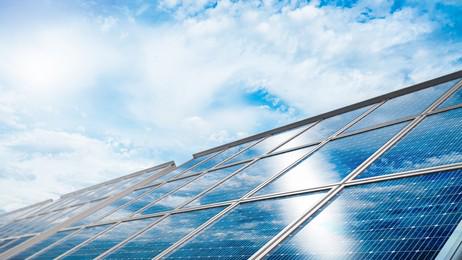
Solar power is a clean, renewable energy source that has a variety of benefits. Solar power systems can be used to generate electricity, to heat water or air, or to power devices in remote locations. Solar power is becoming more affordable as the technology improves and costs continue to drop.
What are the types of solar power supply systems?
Solar power supply systems are classified into two types: grid-tied and off-grid. A grid-tied solar power system is one that is connected to the utility grid. The grid provides backup power in case of a power outage. These systems are less expensive than off-grid systems and are easier to install. However, they are not as reliable during a power outage. An off-grid solar power system is not connected to the utility grid. These systems are more expensive than grid-tied systems, but they are more reliable during a power outage.
How do solar power supply systems work?
Solar power is one of the cleanest and most renewable energy sources available, and it can be used to power a wide variety of devices, from solar-powered calculators to entire homes. Solar power supply systems capture sunlight and convert it into electrical energy that can be used to power devices or to offset energy costs. Solar power supply systems typically include solar panels, an inverter, a battery, and a charge controller. Solar panels capture sunlight and convert it into electrical energy. The inverter changes the solar panel's direct current (DC) output into alternating current (AC), which can be used to power devices. The battery stores solar energy for later use, and the charge controller regulates the flow of electricity from the solar panel to the battery. Solar power supply systems can be used to power a wide variety of devices, including lights, appliances, and electronic devices. Solar power can also be used to offset energy costs by providing solar-generated electricity to the grid.
What are the benefits of solar power supply?
Solar energy is a free, renewable resource that, once harvested, can be used to generate electricity or heat without producing emissions. Solar power supply has many benefits:
1. Solar energy is a renewable resource, which means it can be used over and over again without running out.
2. Solar power is emission-free, which means it doesn't produce the greenhouse gases that contribute to climate change.
3. Solar power is versatile and can be used to generate electricity or to heat water or air.
4. Solar power is becoming more affordable as the technology improves and costs continue to drop.
5. Solar power can be used in remote locations where there is no access to the grid.
6. Solar power is a silent source of energy, which means it doesn't create any noise pollution.
7. Solar power is low maintenance, as there are no moving parts that can break down over time.
8. Many solar power systems come with a warranty, so you can be confident in their performance and longevity.
9. Solar power can add value to your home or business.
10. Going solar shows you're committed to reducing your carbon footprint and doing your part to combat climate change.